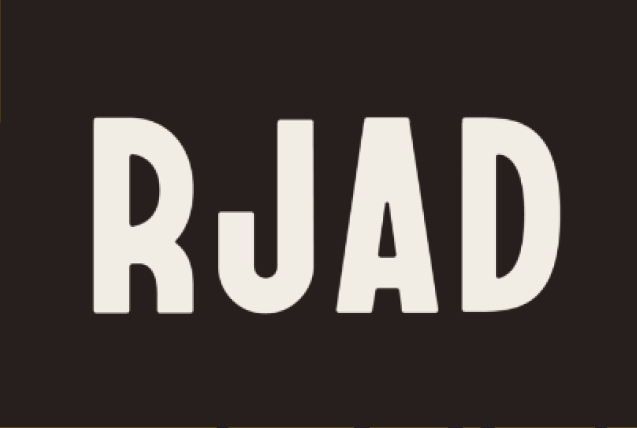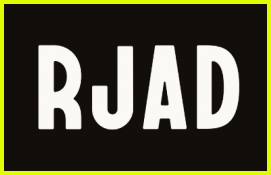Abolition Democracy
Student Syllabus
Description
This course, situated at the intersection of critical theory and praxis, will explore each week a theoretical dimension of abolition democracy and ways in which abolition is put into practice. It will explore abolition in the most capacious sense of the term—not just the abolition of capital punishment or even the prison or police—but rather the entire dominant punitive punishment paradigm in the United States. In the vein of Fred Moten and Stefano Harney, and in the tradition of the abolition democracy of W.E.B. Du Bois and Angela Davis, the course asks:
“What is, so to speak, the object of abolition? Not so much the abolition of prisons but the abolition of a society that could have prisons, that could have slavery, that could have the wage, and therefore not abolition as the elimination of anything but abolition as the founding of a new society.”
The United States incarcerates more of its own than any other country in the world and more than any other civilization in history. With over 2,600 persons on death row, 2.2 million people behind bars, another 5 million people on probation or parole, and over 70 million people in the FBI’s criminal record database, this country now operates a criminal justice system of unparalleled punitiveness. The burden of this system has fallen predominantly on poor communities of color. In fact, in some striking ways, this country’s criminal justice system and reliance on mass incarceration have replaced chattel slavery. As Bryan Stevenson explains, “Slavery didn’t end in 1865. It just evolved.”
From a practical dimension, this course will explore how the country can move from a punitive paradigm to a new paradigm that favors instead education and well-being, one that has abolished prisons, police, and the death penalty, as well as borders, the wage, capital, and other systems and structures that stand in the way of equal human flourishing and liberation.
From a theoretical dimension, this course will explore the theory behind the abolition of the prison, the police, and the death penalty, but also the abolition of property and capital, fossil fuels, and borders, and it will consider the history of the abolition of slavery.
This course is tied and situated within ongoing abolitionist struggles. Whenever possible, the instructor is encouraged to invite practitioners, organizers, activists, and other guest speakers to provide students in the class with a more comprehensive understanding of on the ground abolitionist movement work.
Topics / Learning Objectives
Learning objectives for this module include:
- Exploring the theory behind the abolition of the prison, the police, and the death penalty
- Reflecting on the history of the abolition of slavery
- Exploring how on the ground abolitionist movement works
- Discussing various theoretical dimensions of abolition democracy
- Re-imagining how the U.S can move from a punitive paradigm to a new paradigm that favors education and well-being instead
Required Material
All reading material due each session can be found in the reading and assignment schedule section of this syllabus. Books can be purchased or borrowed from the library, and links to articles have been provided.
Black Reconstruction in America, 1860-1880 by W.E.B. Du Bois (New York: The Free Press, 1998)
Find on Bookshop, Online, or your local library
Abolition Democracy: Beyond Prison, Torture, and Empire by Angela Y. Davis (New York: Seven Stories Press, 2005)
Find on Online, or your local library
Discipline and Punish by Michel Foucault (Trans. Alan Sheridan. New York: Vintage, 1977)
Find on Bookshop, Online, and your local library
Cooperation by Bernard E. Harcourt (New York: Columbia University Press, 2023)
Find on Bookshop, Online, and your local library
Abolition. Feminism. Now. by Angela Davis, Gina Dent, Erica R. Meiners, and Beth E. Richie (Chicago: Haymarket, 2022)
Find on Bookshop, Online, your local library.
We Do This ‘Til We Free Us, by Mariame Kaba (Chicago: Haymarket Books, 2021)
Find on Bookshop, Online, your local library.
Readings and Assignments Schedule
Expectations and Assignments
- Students will be required to read the assigned materials, attend the weekly seminar, and participate in seminar discussion.
- Over the course of the semester, students will be asked to write two reflection papers, each about 2-4 pages, on the session’s readings.
- Students will be encouraged to submit one reflection paper prior to a seminar of their choice, based solely on their interpretation of the readings, and the other reflection paper following the discussion during a session, including ideals and materials shared during the session’s discussion.
- Students will be required to submit a final paper.
Materials for Instructors and Facilitators
Suggested Structure
Seminar-style to facilitate small group conversations
Suggested Assessment Tools
- Discussions
- Reflection paper
- Final paper.
Helpful Resources
For session 2
- Davis, Adrienne. “Don’t Let Nobody Bother Yo’ Principle: The Sexual Economy of American Slavery,” pp. 103–121, in Sister Circle: Black Women and Work, ed. Sharon Harley and The Black Women and Work Collective. Rutgers University Press, 2002.
- Foner, Eric. Reconstruction: America’s Unfinished Revolution, 1863-1877. New York: Harper & Row, 1988.
- Harcourt, Bernard E. “Imagery and Adjudication in the Criminal Law: The Relationship between Images of Criminal Defendants and Ideologies of Criminal Law in Southern Antebellum and Modern Appellate Decisions,” 61 Brooklyn Law Review 1165-1246 (1995).
- Kazenjian, David. “Two Paths Through Slavery’s Archives,” History of the Present, Vol. 6(2), Fall 2016, pp. 133-145
- Wilkerson, Isabel. Caste: The Origins of Our Discontents. New York: Random House, 2020.
For session 5
- For Cops Who Kill, Special Supreme Court Protection, Reuters Study (2020), available here.
- Kaba, Mariame. “Yes, We Mean Literally Abolish the Police. Because reform won’t happen,” New York Times, June 12, 2020, available at https://www.nytimes.com/2020/06/12/opinion/sunday/floyd-abolish-defund-police.html.
- Muhammad, Craig and Noah Gimbel. “Are Police Obsolete? Breaking Cycles of Violence Through Abolition Democracy,” Cardozo Law Review, Vol. 44, no. 4 (2019) available at http://cardozolawreview.com/are-police-obsolete-police-abolition/.
- Materials at http://criticalresistance.org/abolish-policing/.
- Purnell, Derecka. “What Does Police Abolition Mean?” Boston Review, August 23, 2017, available at http://bostonreview.net/law-justice/derecka-purnell-what-does-police-abolition-mean.
- Purnell, Derecka. “Reforms are the Master’s Tools.” Level, October 19, 2020, available at https://level.medium.com/the-system-is-built-for-power-not-justice-c83e6dc4dd6
For session 6
- “A World Without Walls” Abolitionist Toolkit, Critical Resistance, available here.
- Harcourt, Bernard E. “Reducing Mass Incarceration: Lessons from the Deinstitutionalization of Mental Hospitals in the 1960s,” 9 Ohio State Journal of Criminal Law 53-88 (2011).
- Kushner, Rachel. “Is Prison Necessary? Ruth Wilson Gilmore Might Change Your Mind,” New York Times Magazine, April 17, 2019, available at https://www.nytimes.com/2019/04/17/magazine/prison-abolition-ruth-wilson-gilmore.html.
For session 7
- Segura, Liliana. “After Trump’s Execution Spree, Lingering Trauma and a Push for Abolition.” Intercept, February 6, 2021. https://theintercept.com/2021/02/06/execution-trump-death-penalty-abolish/.
- Bruenig, Elizabeth. “A History of Violence: Why does Alabama keep botching executions?” Atlantic, November 22, 2022. https://www.theatlantic.com/ideas/archive/2022/11/alabama-death-penalty-kenneth-smith-execution/672220/.
- Pilkington, Ed. “What is it like to survive an execution by lethal injection?” Guardian. December 28, 2022. https://www.theguardian.com/world/2022/dec/28/lethal-injection-surviving-execution-attempt-alabama.
- Gonnerman, Jennifer. “The Long Defense of the Alabama Death Row Prisoner Doyle Lee Hamm.” New Yorker, September 13, 2016. https://www.newyorker.com/news/news-desk/the-long-defense-of-the-alabama-death-row-prisoner-doyle-lee-hamm.
- Death Penalty Information Center. https://deathpenaltyinfo.org/.
For session 8
- Stevenson, Bryan. Just Mercy. New York: Simon and Schuster, 2014.
- Futrell, Nicole Smith. “The Practice and Pedagogy of Carceral Abolition in a Criminal Defense Clinic, 45 N.Y.U. Rev. L. & Soc. Change 2 (2021), 159-196.
- Rosen, Charlotte. “Fighting from Inside: Prison Litigation as a Conduit for Resistance.” n+1 43 (Summer 2022). https://www.nplusonemag.com/issue-43/politics/fighting-from-inside/.
For session 10
- Morgan, Jennifer. “Partus sequitur ventrem: Law Race, and Reproduction in Colonial Slavery,” Small Axe, Volume 22, Number 1, March 2018 (No. 55), pp. 1-17.
- Violence Intervention Program NYC, available here.
For session 11
- Connect NYC, available here.
- Adorno, Theodor W. “Late Capitalism or Industrial Society?” In V. Meja, D. Misgeld and N. Stehr, eds, Modern German Sociology. New York: Columbia University Press, New York, 1987, p. 232.
- Harcourt, Bernard E. “The Behemoth as a Model of Political Economy: The Will to Chaos and Disorder.” May 25, 2022. Available on SSRN here https://papers.ssrn.com/sol3/papers.cfm?abstract_id=4118958.
- Dardot, Pierre and Christian Laval. Common: On Revolution in the 21st Century. Cambridge: Bloomsbury Press, 2019 (selections)
- Hardt, Michael and Antoni Negri. Assembly. New York: Oxford University Press, 2017 (selections)
- Harris, Angela. “Compassion and Critique,” Columbia Journal of Race and Law, Vol. 1:3 (2012), pp. 326–352.
For session 13:
- Achiume, E. Tendayi. “Migration as Decolonization,” 71 Stanford Law Review 1509 (2019)
- Loyd, Jenna M. “Chapter 5: Prison Abolition Perspectives on No Borders.” In Open Borders: In Defense of Free Movement, edited by Reece Jones, 89-109. Athens: University of Georgia Press, 2019.
- Bauder, Harald. “The Possibilities of Open and No Borders.” Social Justice 39, no. 4 (130) (2014): 76-96. Available at www.jstor.org/stable/24361623.
- Caplan, Bryan and Vipul Naik. “A Radical Case for Open Borders.” In The Economics of Immigration: Market-Based Approaches, Social Science, Public Policy. New York: Oxford University Press, 2015. Available here.

